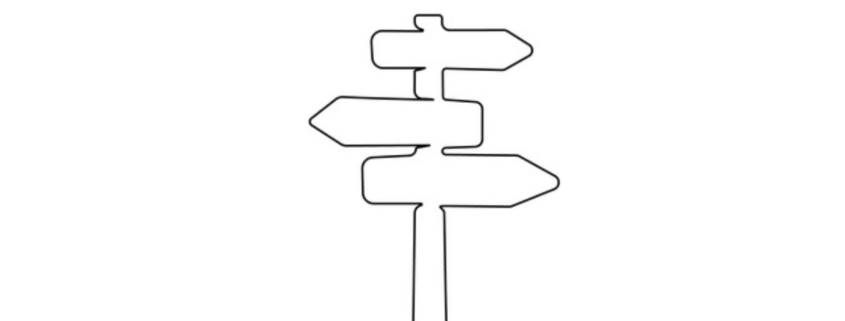Sacred and Taboo.
There’s a business book I love called Scaling Up Excellence. It was written by bestselling author Robert Sutton and his Stanford University colleague Hayagreeva “Huggy” Rao, who offer a course of a similar name at Stanford.
I have referenced this book so many times in the 8 years since it was published that you’ve probably heard me mention it or been in one of my strategic Visioneering Sessions or Design Thinking Days where I’ve leaned on its lessons.
As the authors explain, the work of scaling up a company is often “akin to running a long race where you don’t know the right path, often what seems like the right path turns out to be wrong, and you don’t know how long the race will last, where or how it will end, or where the finish line is located.” Not so different from life itself.
There are many things I love about this book, but the concept which I’ve found relatable to just about every aspect of work and life is the notion of sacred and taboo.
Sutton and Rao describe it like this: When most organizations are trying to scale—be that a company or a team—they often put their focus on the numbers: How big do we want this team to become? What revenue number are we trying to hit? What geographic footprint do we want to reach? Those are natural ways to think about scale. They suggest, however, that if organizations and their leaders instead focus on the core—what you, your team, or organization is at its most excellent—and then scale around that, you’ll be set up for much greater success and sustainability over time.
Knowing who or what you are at your most excellent requires that you also identify what is sacred and taboo in your approach.
Over the years, I’ve interpreted this sacred and taboo exercise many ways, for many assignments, but have found a new relevance to it in this past week, as I’ve reflected on how we as a people, as business leaders, and how branches of our government has revealed what it holds sacred.
I think about it like this:
- When it comes to sacred: What is core to your approach, as a business, a team, a leader? What values are central to your efforts, and what is essential to protect and preserve always? In other words, what would you do tomorrow, and the day after that, even if you didn’t have the resources to do it?
- And when it comes to taboo: Who or what are you not? What will you never become? What will we refuse to do, even if you were handed $100M to expand your impact?
Sutton and Rao call it “the Problem of More”: Leaders spend much of their time trying to scale up their organizations, even as they also strive to create and multiply pockets of excellence.
We can’t have it all. We can’t have clear values and then decide sometimes we’ll compromise them…not if we’re trying to scale excellence. So, it really comes down to knowing, clearly and definitively, who you are, and who you are not, as a team, an organization and a leader.
This past week, as I reflect on the loss of my dear grandmother, and on the fall of Roe vs. Wade, I’ve thought a lot about what we each hold dear through life; what we hold sacred. And on the inverse, what we each hold as taboo. Those things that are worth fighting for, worth waiting for, and worth walking away from.
It comes down to what we believe in. We each have our own sets of sacred and taboo, worth knowing in ourselves and respecting in others. Knowing our own set of values and virtues can guide us and steer us through business, but more importantly, through life. Through those most vexing of challenges and the most challenging of times. Our sacred and taboo can help us determine what we say yes and no to. They can help chart our respective paths through life. Most importantly, they keep us anchored.
So, ask yourself. What do you hold sacred? And taboo? And what would you do differently if you lived fully through those values?
This is week 26 of the Finding The Words column, a series published every Wednesday that delivers a dose of communication insights direct to your inbox. If you like what you read, we hope you’ll subscribe to ensure you receive this each week.





 Check out our new
Check out our new